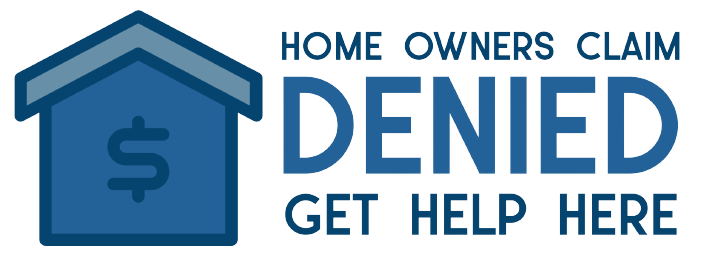Purchasing a house is perhaps one of the most important dreams of the common individual. After doing so, it is very important to invest in home insurance because different external factors may damage your home. For example, vandalism, robbery, weather events, and fires. More specifically, in the State of Florida, the weather can be truly challenging throughout the yearly hurricane season.
Unfortunately, the grand majority of times the insurance companies will try to save as much money as they can. As a result, they may deny your claim or grant you a low offer to cover the damages you’ve suffered your damages. Their main reason for their desire to undermine your claim is because insurance companies simply do not want to pay that money. You see, by covering those damages they are automatically losing money and not making it
A denied claim in Florida is a stressful situation but we would like to tell you that there is a solution for this problem. You can start a legal process against these insurers. In addition, you are in your right to demand a good service from your own insurer . However, filing a claim against these firms on your own can be quite tricky. Consequently, you will need the assistance of a homeowner insurance lawyer to fight for your rights.
Throughout this article, you will learn why these claims may be denied, as well as why you should hire a lawyer to counter your insurance company.
Understanding Homeowners Insurance
Homeowners insurance is a means of protection that usually covers interior and exterior damage, loss or damage of personal belongings, and injuries that could occur inside a property. When individuals file a claim for one of these aspects, they will be required to pay the deductible.
A homeowners insurance deductible is the amount a homeowner must pay toward a claim before the insurer pays its part.
For example, imagine you have a $500 deductible. A natural disaster causes $13,000 worth of damage. In this case, you would pay $500 and your insurer will assume the responsibility of paying the remaining $12,500. For wage-earners, the most common tax deductions include those for mortgage, interest payments, state and local tax payments, student loan interests, and charitable deductions.
Every homeowners insurance policy has a liability limit. This calculates the amount of coverage that homeowners are entitled to if an accident occurs. The standard limits are often set at $100,000, however, the policyholder can establish a higher limit. When a claim is filed, the liability limit stipulates the percentage of the coverage amount that would be utilized for replacing or repairing damage to the property structures, personal belongings, and costs to live somewhere else while the property is being repaired.
Types of Homeowners Claims
As a homeowner, you must be aware that there could be events beyond your control that lead to damages to your property. In order to understand what your insurance actually covers, here are some of the common homeowners claims:
- Wind and Hail: These damages refer to instances resulting from high-velocity winds. This factor may uproot trees, damage roofs, and destroy belongings within the house and around it. Strong storms can produce heavy winds that may damage your home’s siding and cause terrible debris to fall on your roof.
Hail, often stemming from strong storms can provoke serious damage to homes. This type of precipitation can measure anywhere from 0.2 inches to up to 8 inches in diameter. Large hailstones can break windows, wreak havoc on roofs, damage wood facades, concrete, clay, asphalt, and other types of household materials.
- Water and Temperature freezing: Water damage can be classified in 2 types:
Non-weather water damage can be produced by problems with sewer, plumbing pipes, drains, valves, and water leaks.
Weather-related water damage claims can be filed due to roof damage, frozen pipes, torn siding, and other damages. Apart from offering coverage for damages, insurance companies can temporarily cover your living expenses if you are forced to live somewhere else while your home is being repaired.
- Vandalism: These include losses caused by an intentional attack to your property such as someone else breaking your window, wrecking your vehicle, and spraying graffiti on your property.
- Fire and Lightning: Home fires are often caused by cooking accidents, electrical problems, heating, and smoking.
- Theft: Claims for theft can be filed for personal property losses and home damage resulting from a break-in. Homeowners insurance must cover theft of property both inside and outside your home and pay for repairs to your house during a theft.
Lightning on the other hand, can produce a power surge in your home which can destroy appliances and costly electronics.
Reasons Why a Claim May Be Denied
- Not Filing Your Claim on Time: Most insurance policies will require that you notify them promptly of any loss within your property. There are also time sensitive requirements to file and submit specific paperwork. According to the Florida Statutes 95.11, the property damage claim limit is usually 5 years for the repair or replacement of damaged or destroyed property to be claimed and executed..
- Questionable Claims: After a disaster, insurance companies may send their own adjuster to verify the damages to your home and evaluate your claim. If they find anything suspicious or questionable involving the original application for coverage or with the claim itself it is possible that your claim could be denied.
- Insufficient Documentation of The Property Damage: It is crucial to prove the damages that your home has suffered in totality. Insurance companies are not responsible for filing the needed documentation for you. For that reason, it is vital to properly document the damage done to your property. Make sure you notate every detail about how your home was damaged and the exact date of the incident.
- Exclusion Clauses on Contracts: Every homeowners insurance comes with its exclusions. This term explains that there could be cases where policies may prevent your insurer from offering coverage for specific losses within your property.
- Failure to MaintainPreventative Measures: In a property loss, homeowners are required to protect their property from further damage and mitigate the extent of loss. Leaving the home exposed to additional damage and not taking reasonable steps to reduce the extent of the damage could lead to a denied claim.
- Nature of The Damage: Insurance companies often categorize damages caused by windstorms or water as “unexpected events.” As a result, the damages provoked by these circumstances may not be covered by insurers.
It is also important to note that the new Florida legislation reduced the statute of limitations for filing windstorm and hurricane property damage claims has now changed from five years to three years.
What to Do If Your Homeowners Claim Has Been Denied
- Understanding Your Claim: Homeowners insurance claims can be quite difficult to comprehend due to its specialized verbiage. It is very important to re-read your claim in order to understand why it was denied. The reason why your claim was denied must be explained. However, if it is not explicit in their response, you can request them to explain to you why it was rejected in the first place.
- Comprehending Your Own Policy: If your claim has been denied, it is crucial to review your policies. If your home was damaged in a fire or other accident, you can request a copy from your insurer. Once you have this copy, verify if your claim was denied with or without a cause. Sometimes, claims are denied due to a filing error from your insurer. Claims may also be denied due to a mistake when limiting your coverage.
- Prove Why Your Claim Was Incorrectly Denied: If you consider that your claim was incorrectly denied, it is important to gather evidence to prove your point. We suggest you take photographs of the damage, show records of purchases you made to protect your house, and document your conversations with your insurance carrier.
- File an Official Appeal: Make sure you properly file any documentation needed. You will need to prove that the damages were not provoked by you. In addition, it is vital to speak to a home insurance lawyer in order to receive professional advice on how to proceed with your claim.
Why You Should Hire a Homeowners Insurance Lawyer in Florida
- Insurance firms often utilize schemes against individuals who are not represented by attorneys. Home insurance attorneys can assist you with your claim since they possess the needed knowledge on policies and laws.
- Understanding legal verbiage within documents can be difficult. For this reason, lawyers will help you comprehend verbiage within paperwork and other documentation.
- Attorneys can examine your policy to determine your coverage and any payments the company is required to make. Additionally, lawyers can perform a deep investigation into previous and current home inspections, audits, and other documentation of your home.
- If your appeal has been denied, a homeowner’s insurance attorney can take your case to trial.
We Are Here For You!
This information has been brought to you by the offices of HomeOwners Claim Denied. We are the best home insurance attorneys in the State of Florida and deliver justice! If you consider that your denied claim in Florida has been unfair, do not hesitate in calling us! We are here for you!

